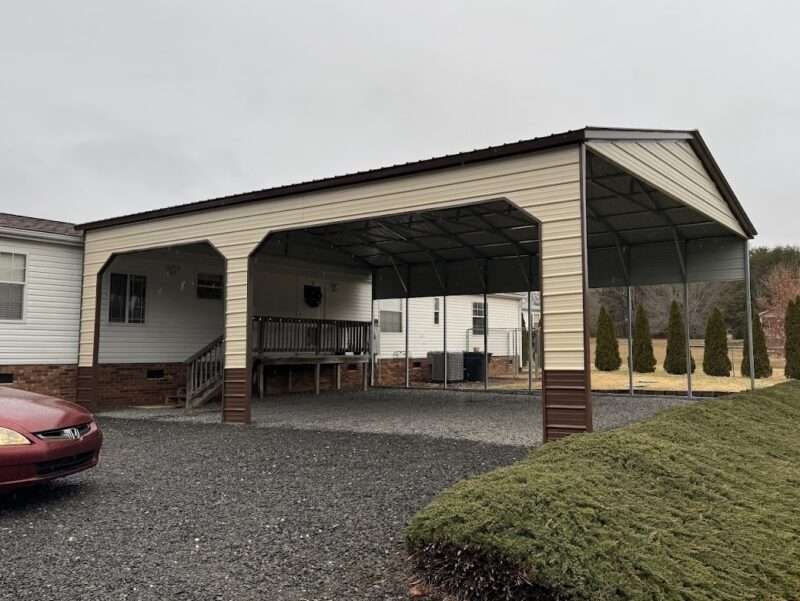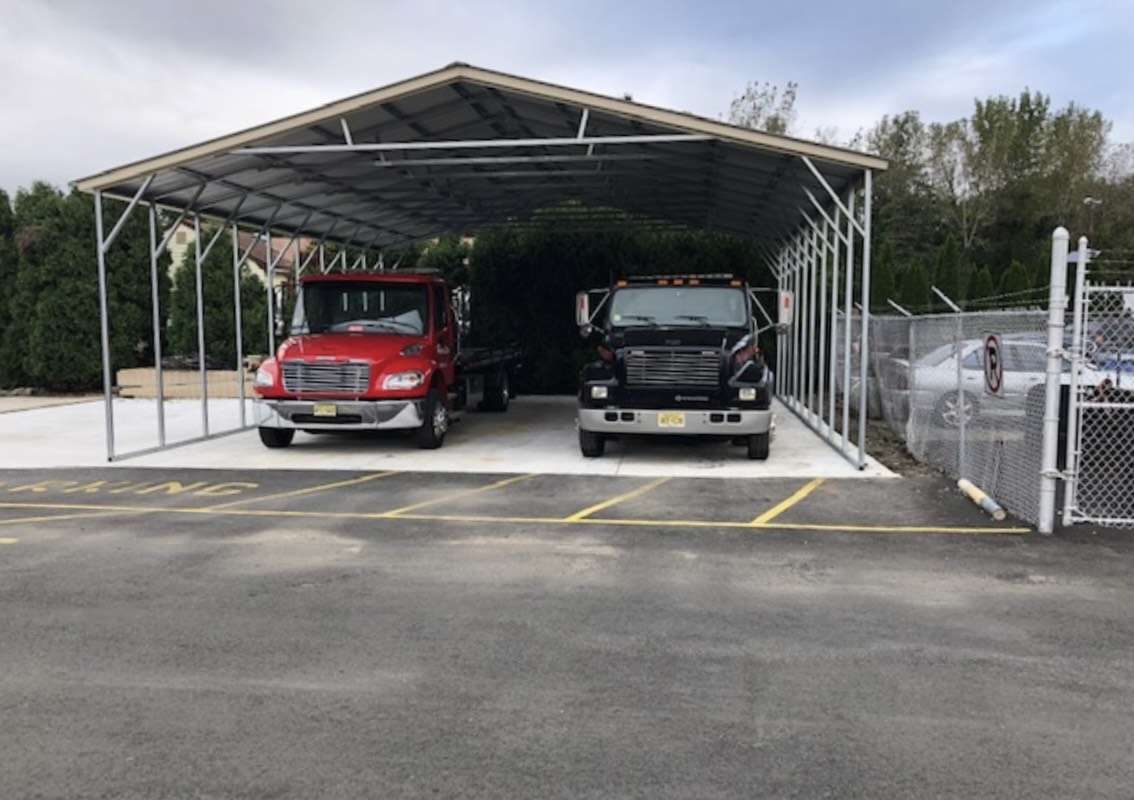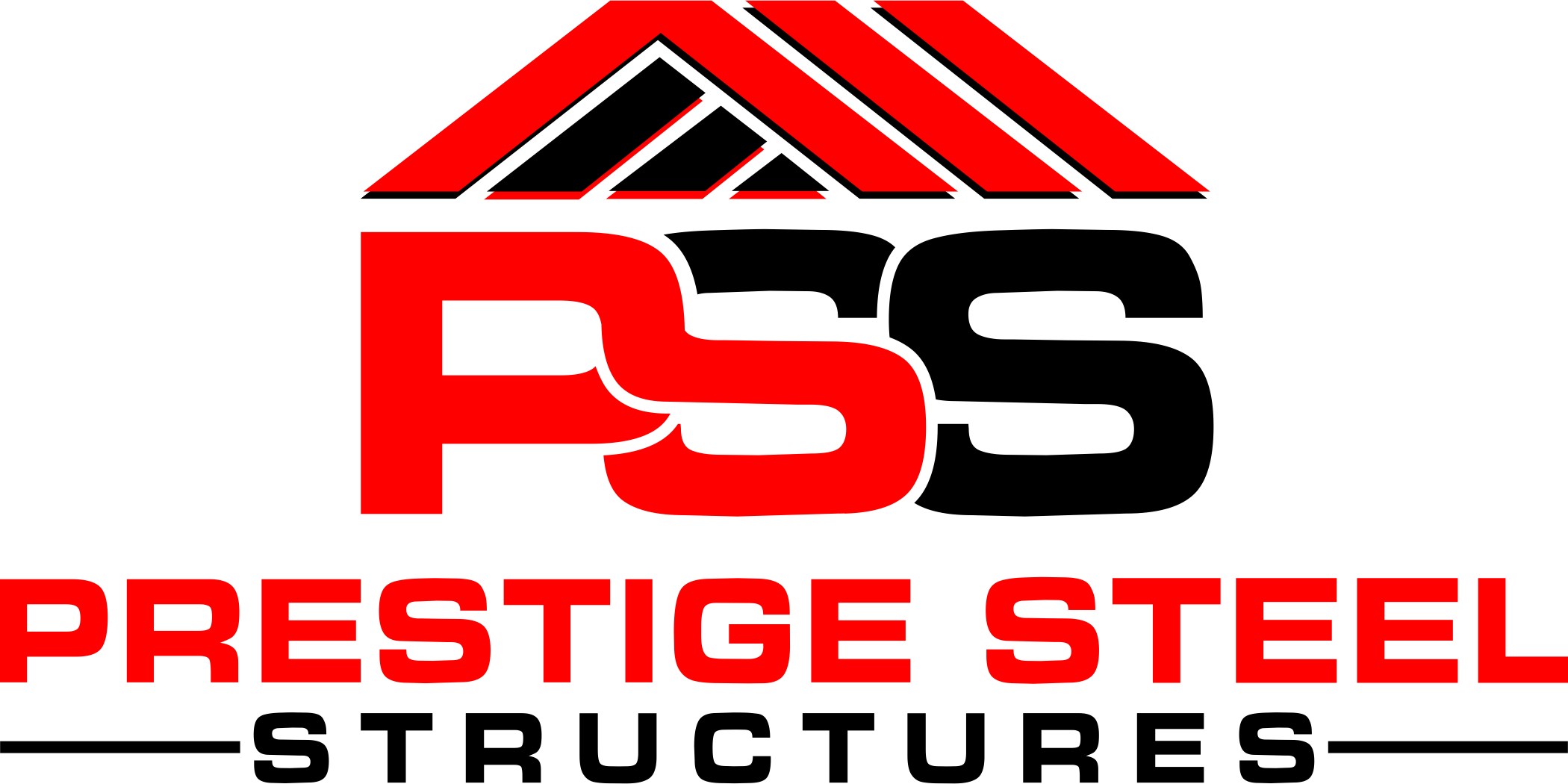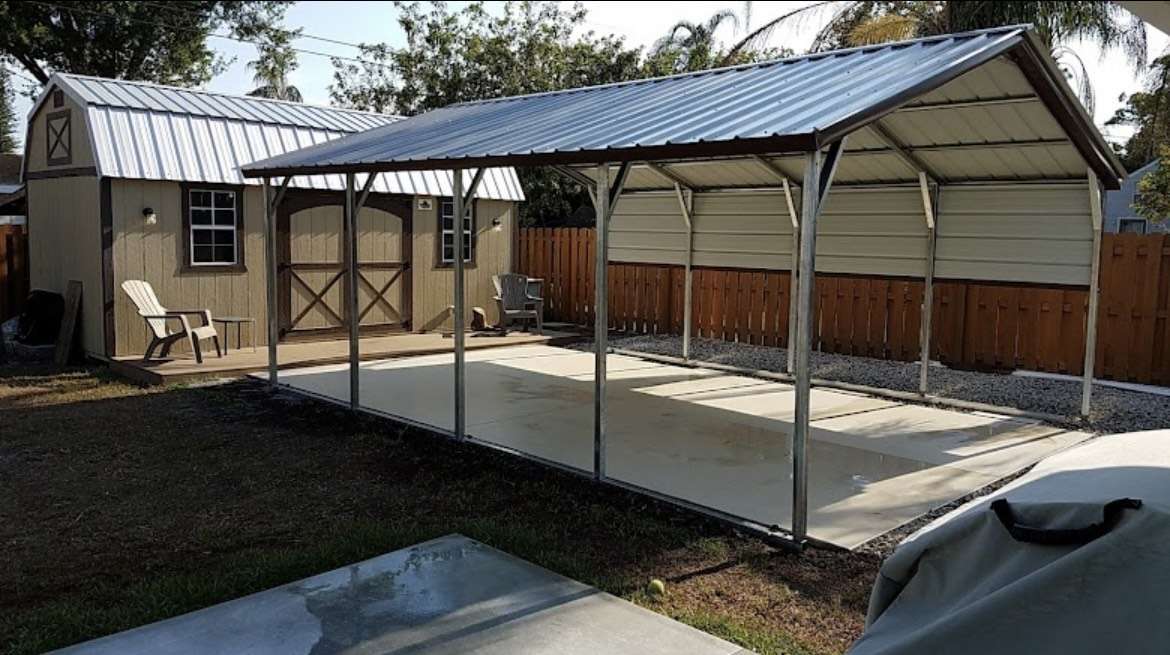Metal carports are great for shielding your vehicle from harsh elements like rain, snow, and intense sun. However, metal structures are not effective at keeping temperatures stable. Since metal conducts heat quickly, the inside of a metal carport often matches the outside temperature. This means your car may still face extreme heat or cold, even when parked under shelter.
To solve this, consider adding insulation. Insulating your carport helps reduce temperature swings, making it more comfortable and protective. It also helps extend the life of anything stored inside, especially in areas with harsh climates.
Adding insulation isn’t just for enclosed garages, it works for open carports too. Foam boards, fiberglass rolls, or reflective bubble insulation can all help. Choose one that fits your climate and budget. Install it between the metal panels and interior surface. Seal any gaps with weatherproof tape or spray foam.
This process can be done as a DIY project if you’re comfortable with tools. Otherwise, hire a professional to ensure proper installation. The goal is to create a more consistent, manageable environment under your metal carport.
If you’re in the market for a new carport, consider getting one that’s already insulated. Many manufacturers offer pre-built, enclosed carports with insulation options. These are convenient and save time. You can often customize the size, layout, and features to suit your needs.
A custom-built insulated carport can also come with warranties for added peace of mind. Just remember, modifying the structure after installation may void any coverage provided.

Top Insulation Choices for Your Metal Carport
Adding insulation to your carport is a smart way to improve comfort and protection. Once you decide to insulate, it’s time to choose the right material. Here are three top insulation options that are commonly used and highly effective.
Foam Insulation
Foam insulation comes in two main types, spray foam and rigid foam boards. Spray foam is applied with a nozzle and expands to fill spaces. It creates a tight seal that helps block both heat and moisture. Rigid foam boards are large, firm panels that you can cut to fit specific areas. They are easy to install and offer long-lasting protection. Beyond controlling temperature, foam insulation also keeps pests out. Mice, rats, and other intruders often try to find shelter in carports. Foam insulation adds a solid barrier that deters these unwanted visitors. It’s ideal if you want insulation that delivers both performance and added security.
Fiberglass Insulation
Fiberglass is one of the most widely used insulation materials, especially in residential buildings. For carports, make sure to choose fiberglass that’s rated for use in metal structures. This ensures better durability and effectiveness. Always buy from a trusted brand to get reliable results. One major benefit of fiberglass is its low cost. Compared to other insulation options, it tends to be more budget-friendly. If you want to improve your metal carport without spending a lot, fiberglass could be your best option. It’s cost-effective and still delivers solid thermal performance when properly installed.
Reflective Insulation
Also known as radiant barrier insulation, this material is great for hot climates. It reflects heat away from the interior, helping keep your carport cooler during summer. Reflective insulation works by blocking radiant heat transfer, which is a major cause of rising temperatures. However, it’s best installed during the construction of the carport. If your metal structure is already built, this option might be harder to apply. Still, if you’re planning a new carport or doing a major upgrade, reflective insulation is worth considering for its energy-efficient benefits.
Each insulation type has its strengths, so your decision should match your climate, budget, and carport setup. Proper insulation doesn’t just protect your vehicle, it also adds value to your property.

Why Insulating Your Carport Makes Sense
Insulating a carport offers practical benefits for everyday use. Whether it’s a new build or an upgrade, insulation improves comfort, protection, and value. It helps convert a basic shelter into a more versatile and reliable space. From better climate control to property value, the benefits add up quickly. Let’s break down the main reasons why you should consider adding insulation to your carport.
Stay Comfortable All Year Long
If you plan to spend time in your carport, keeping it comfortable is important. Without insulation, temperatures can become extreme. Insulation helps regulate heat in the summer and cold in the winter. Even without heating or cooling systems, insulation makes the space more usable. It reduces hot air buildup during the day and traps warmth on cold mornings. This makes working, relaxing, or storing items more practical year-round.
Protect Your Belongings from Damage
Many people store items in their carport that can be damaged by heat or cold. Insulation protects tools, furniture, and other valuables from extreme temperatures. It helps prevent cracking, rust, and other weather-related damage. Your items will stay in better condition over time. Electronics, paint, and wood materials all benefit from a more stable environment. Insulation keeps moisture out, which also reduces mold and mildew risk.
Add Value to Your Property
Adding insulation can also boost the value of your property. A finished carport with insulation looks more complete and functional. It adds appeal for future buyers and increases your home’s overall usability. Even if you don’t plan to sell, it’s a smart improvement. An insulated carport can double as a workshop or hobby space. This added flexibility makes your home more attractive and livable.
When You Might Not Need Insulation
Not every carport needs to be insulated. If you only use it to park cars and nothing else, insulation may not be worth the cost. But if you use your carport as a workspace, storage area, or casual hangout, insulation is a valuable upgrade. Consider your usage before deciding to install insulation. In mild climates, the added comfort may not be noticeable. However, in areas with temperature extremes, insulation can make a huge difference.
Explore Custom Options and Get Support
Want to build a carport that fits your needs? Visit our page to explore your options. If you have questions along the way, our support team is ready to help. You can also choose from various materials, layouts, and finishes. Many models come with warranties, giving you peace of mind after purchase. A custom carport gives you more control and better long-term satisfaction.
Conclusion
Insulating your metal carport is one of the smartest upgrades you can make for long-term comfort and protection. It helps maintain a stable interior temperature, shields your belongings from damage, and even boosts property value. Whether you’re installing it yourself or hiring a pro, the right insulation pays off over time. Choose a material that fits your climate and budget, and ensure proper sealing for the best results. If you’re building a new carport, opt for a pre-insulated model to save effort and time. Every step you take toward better insulation makes your carport more versatile and efficient. Don’t overlook this important investment, it enhances daily use and future value. Ready to take action? Explore available options and start building a space that works harder for you every day.
Frequently Asked Questions
Do I really need to insulate my metal carport?
If you use your carport for more than parking, insulation is a smart choice. It improves comfort in extreme temperatures. Insulation also protects stored items from moisture, heat, and cold. If you only park your car, insulation may not be essential. It also helps reduce noise from rain or wind, making the space more pleasant.
What type of insulation is best for a metal carport?
Foam boards offer strong thermal and moisture resistance. Spray foam seals gaps and deters pests. Fiberglass is budget-friendly but must suit metal buildings. Reflective insulation works well in hot areas by deflecting radiant heat. Choose insulation based on local climate and your carport’s design.
Can I install carport insulation by myself?
Yes, if you’re comfortable with tools and measuring materials. Foam boards and fiberglass are easier for DIY jobs. Always seal gaps with weatherproof tape or spray foam. If unsure, hiring a professional ensures proper fit and performance. Follow safety instructions and wear protective gear during installation.
Does insulation make a carport more energy-efficient?
Yes, it helps regulate temperature and reduces heat transfer. This makes the carport more comfortable throughout the year. It also protects sensitive equipment or belongings. Less temperature swing means lower wear and tear on what you store. You may also save on nearby cooling or heating costs.
Is it worth getting a pre-insulated carport?
Absolutely, especially for new constructions or major upgrades. Pre-insulated models save time and avoid structural changes later. They also come with warranties and customization options. This ensures better long-term value and reduced maintenance hassle. Installation is also cleaner and faster with factory-prepared insulation.


